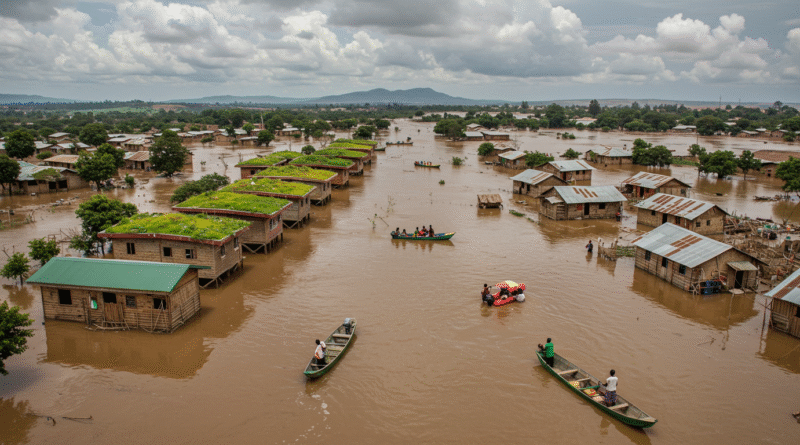Niger Flooding Reveals Real Estate Crisis
The Niger State flooding and the real estate losses that followed, not to mention the lives lost are drawing urgent attention as the 2025 Mokwa disaster unfolds in central Nigeria.
In one of the worst floods in recent history, over 200 people have been reported dead, with more than 1,000 still missing. As the waters recedes, the damage left behind has once again exposed the weak link between Nigeria’s urban planning systems, climate adaptation efforts, and real estate development.
The Niger State Flooding and Real Estate: A Pattern of Neglect
Niger State has long been vulnerable to flooding, given its location downstream of the Kainji, Jebba, and Shiroro dams.
However, experts say this year’s disaster was intensified by unregulated land use. Deforestation, and rising rainfall levels linked to climate change also play a significant role in the disaster. Despite previous warnings and past flooding incidents in the region, little has been done to strengthen drainage systems. Neither have building codes been enforced or communities relocated away from high-risk areas.
Hence, the real estate impact is immense. Properties in flood-prone regions like Mokwa are seeing falling values. Even new investments are grinding to a halt. Real estate developers and homeowners now face the dual challenge of rebuilding and adapting for future resilience. Analysts estimate that the region could see up to a 10% devaluation in land and housing stock if mitigation strategies aren’t implemented quickly.
Furthermore, there are reports that the actual death toll may far exceed official figures. This discrepancy points to deeper issues in emergency response, infrastructure planning, and governance transparency.
Solving Niger Flooding and Real Estate Risks
To address Niger flooding and real estate risks, a multi-layered solution is essential:
- Climate-smart real estate: Developers must begin incorporating flood-resistant designs. They have to consider raised foundations, and eco-infrastructure into new builds.
- Policy enforcement: Government bodies must enforce zoning laws and land use regulations to prevent unsafe construction.
- Ecosystem restoration: Large-scale reforestation and wetland conservation can help naturally absorb floodwaters and reduce runoff.
- Community-led solutions: Local knowledge and participation should guide risk mapping, early warnings, and emergency protocols.
However, this crisis is not isolated. Similar climate-resilient real estate initiatives, like Lagos’ Makoko Floating School, England’s solar panel mandate, and futuristic smart cities such as NEOM in Saudi Arabia and Dubai’s green city project, show that bold innovation is possible when backed by policy and investment.
Niger flooding and real estate challenges must now become a national priority—because the cost of delay is measured in lives, livelihoods, and lost futures.

